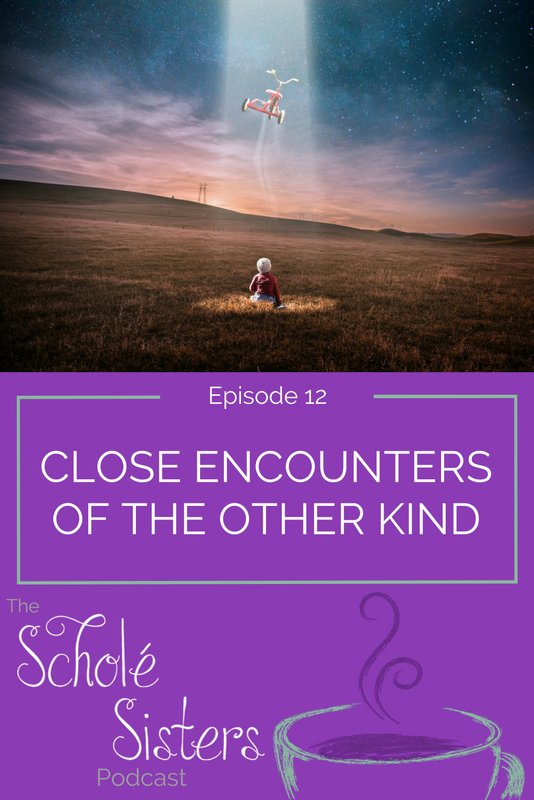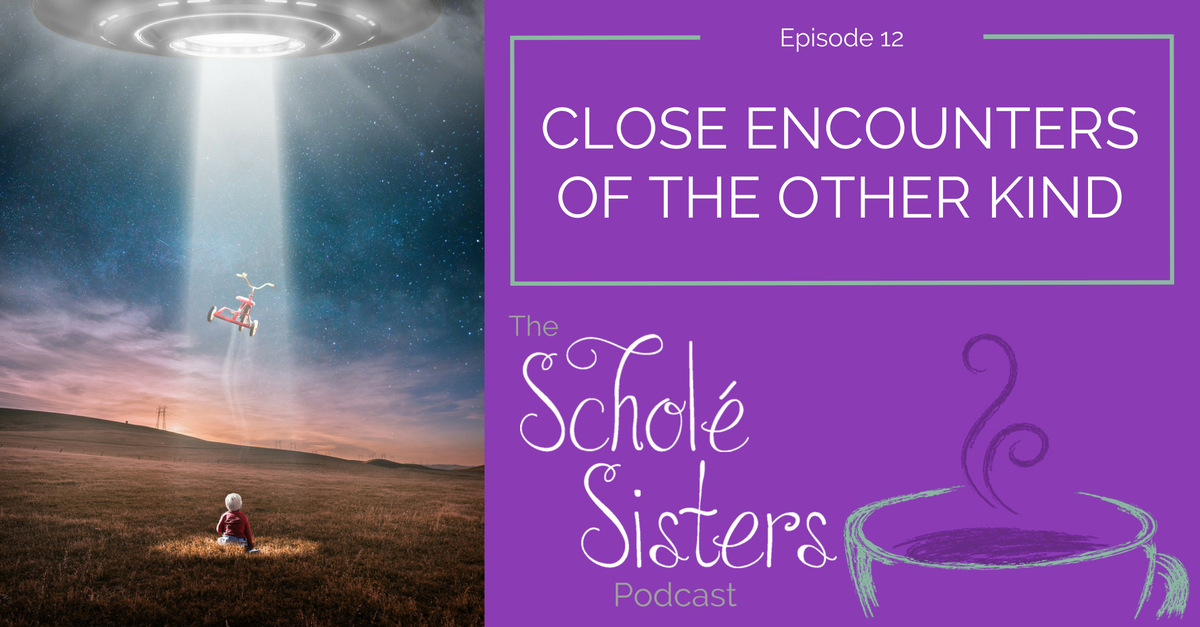SS #12: Close Encounters of the Other Kind (with Kathy Wickward)
My guest today is Kathy Wickward, former homeschool mom (she’s graduated, folks!), one of the founders of CM West, and one of the masterminds behind AmblesideOnline‘s living science curriculum. On today’s show, Kathy and I discuss leading our children through encounters with viewpoints with which we don’t agree. Is there ever an age not to do this? And how DO we do this? Kathy shares with us her theory of six degrees of separation from a subject, and more!

Thank you to our sponsor:
This episode is sponsored by Teaching Reading with Bob Books. Teaching Reading with Bob Books is a line of printable phonics lessons that is 100% gimmick-free. As a no-nonsense approach to teaching reading, Teaching Reading with Bob Books aims at that little space in your day where reading muscles are grown — the key ten to fifteen minutes of instruction that can change a child’s life.
Listen to the podcast:
Podcast: Play in new window | Download
Show Notes:
- Scholé RDA
- Kathy:
Lilian Russell: A Biography of a “America’s Beauty” by Armond Fields
Life’s Matrix: The Biography of Water by Philip Ball {also mentioned}
- Brandy:
The Fourth Phase of Water by Gerald Pollock
- Kathy:
- Topical Discussion: Close Encounters of the Other Kind
- Kathy’s Guest Post on Afterthoughts — Encountering Opposing Ideas: A Catholic Reads Westward Ho!
Westward Ho! by Charles Kingsley
Plutarch (guide by Anne White)
Ourselves by Charlotte Mason
The Pursuit of God by AW Tozer
Thirteen Things That Don’t Make Sense by Michael Brooks
Sophie’s World by Jostein Gaarder
Faust by Johann Wolfgang Von Goethe
- History Through Different Lenses: Comparing Bauer with Foster
- Reading History from Different Perspectives
Churchill’s History of the English Speaking People
Our Island Story by H.E. Marshall
Daughter of Time by Josephine Tey
Lord Peter Wimsey stories by Dorothy Sayers
The Great Gatsby by F. Scott Fitzgerald
The Diversity of Life by Edward O. Wilson
The Abolition of Man by C.S. Lewis
- Nitty Gritty Homeschool Question
- AmblesideOnline
- AO Forum
- Harvard 5 foot shelf of books
- Mortimer Adler’s list of books every educated person should read
David McCullough
- Nathaniel Filbrick:
P.W. Atkins books
- 1000 Good Books List
Kim by Ruyard Kipling
- Posts on Mothers’s Education Course:
The Living Page by Laurie Bestvater
Please leave us a review in iTunes!
If you don’t know how to do that, click here for illustrated instructions.
Want to ask an upcoming Nitty Gritty Homeschool Question?
We now have two options! Go fill out this handy little form OR leave a voicemail and your question might be featured on a future episode of the show!


























I loved this episode – thank you! When you were talking about water I remembered my husband telling me about our high school science teacher (at a public school) telling him that one of the primary reasons he believed in God was because of the unusual properties of water – such as how the solid state floats on the liquid state. I will definitely check out those books.
Yes! Water is such a great apologetic. I remember learning in high school that there was a point at which water was technically all three states — solid, liquid, and gas — at once. It was a bit of a picture of the Trinity for me. 🙂
Yeah!!! I just got a chance to listen while I was unloading the dishwasher, heard my own voice (was confused for a second) then realized it was my question being answered! I love all the ideas and can’t wait to look more into them.
I have been commonplacing and love it! I am thinking about doing a blog post about how I currently practice Schole and some things I would like to do, including some of these ideas!!
I was hoping you’d hear it soon. 🙂 I can’t wait to hear what you end up doing! 🙂
I’m working my way through old episode. As for water… yes, its amazing! In fact, we adopted a set of 5 embryos which has resulted in us learning about about the freezing of embryos (yes, the ethics of this is a whole ‘nother topic!). The new technology freezes them so fast that the water freezes without the sharp crystals that would normally form when ice freezes in a more normal environment. This is about ‘types of ice’, I think. Hubby, who has the BS in Physics, knows more about this.
I am teaching High School Biology this next year (2017-2018), and we’ve got some loaded topics coming up. Glad I’m finally listening to this podcast. Thank you.
Embryo adoption! Fascinating! When my husband got his first “real” job out of college, he worked right down the street from a snowflake adoption agency.
I wish you were closer. I *need* a biology teacher for next year! I had hoped our physical science teacher would keep on with bio, but plans changed. 🙁
I know this is a really old episode, but in it you mentioned a study guide for Faust which I did not see in the show notes. Any idea what that commentary/study guide was?